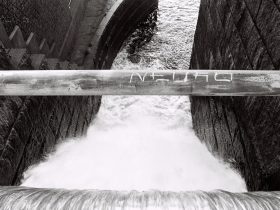In today’s world, access to clean water is a fundamental human right. However, many regions around the globe still suffer from water scarcity and contamination, leading to dire consequences for both people and the environment. As awareness of these issues grows, so does the importance of ethical investments in clean water initiatives. By directing financial resources towards sustainable and responsible projects, we can not only address the urgent need for clean water but also contribute to the preservation of natural resources and the well-being of communities.
Understanding the Water Crisis
Before delving into the realm of ethical investments in clean water initiatives, it is crucial to comprehend the gravity of the global water crisis. According to the World Health Organization (WHO), approximately 2.2 billion people do not have access to safe drinking water, and about 4.2 billion lack proper sanitation facilities. Moreover, water-related diseases claim the lives of over 3 million people annually, with children being the most vulnerable.
The water crisis is not limited to developing countries. Even in developed nations, issues such as water pollution, aging infrastructure, and droughts pose significant challenges. A comprehensive approach is necessary to combat these issues and ensure a sustainable water future for all.
The Role of Ethical Investments
Ethical investments, also known as socially responsible investments, are financial allocations that prioritize both financial returns and positive social or environmental impact. When it comes to clean water initiatives, ethical investments play a vital role in supporting projects that focus on water conservation, sanitation, and the provision of clean drinking water.
By investing ethically in clean water initiatives, individuals and institutions can actively contribute to solving the water crisis. This approach allows investors to align their financial goals with their values, making a tangible difference in the world while generating returns on their investments.
Areas of Ethical Investment in Clean Water Initiatives
Ethical investments in clean water initiatives encompass a wide range of areas. Here are some key focus areas where individuals and institutions can direct their investments:
- Water Conservation: Investing in projects that promote water conservation is crucial for sustainable water management. Initiatives can include innovative technologies that reduce water usage in agriculture, manufacturing, and domestic settings. Water-efficient irrigation systems, rainwater harvesting projects, and smart water metering are all examples of investments that can have a significant impact on water conservation.
- Water Infrastructure Development: Investing in the development of water infrastructure is essential for improving access to clean water and sanitation facilities. This can involve financing the construction of wells, boreholes, water treatment plants, and wastewater management systems. Collaborating with local communities and organizations is crucial to ensure sustainable and effective infrastructure development.
- Water Filtration and Purification Technologies: Ethical investments can focus on supporting projects that develop and distribute affordable and scalable water filtration and purification technologies. These technologies help remove contaminants and provide safe drinking water in regions where access to clean water is limited. Investments in research and development of innovative filtration methods, such as nanotechnology or solar-powered purification systems, can make a significant difference.
- Education and Awareness Programs: Investing in education and awareness programs is vital for promoting responsible water usage and conservation practices. Projects that focus on educating communities about water management, sanitation, and hygiene can empower individuals to make informed decisions. By investing in these programs, individuals can contribute to long-term behavioral changes and create a culture of water stewardship.
- Investing in Companies with Strong Water Stewardship Practices: Another way to have an impact is by investing in companies that prioritize water stewardship and have sustainable water management practices. By supporting these companies, investors can encourage responsible water usage and contribute to a more sustainable and equitable water future.

The Benefits of Ethical Investments in Clean Water Initiatives
Ethical investments in clean water initiatives offer both financial and non-financial benefits. Here are some key advantages:
- Positive Impact: Ethical investments allow individuals and institutions to actively contribute to addressing the global water crisis. By supporting sustainable and responsible projects, investors can make a tangible difference in providing clean water to communities in need and preserving natural resources.
- Financial Returns: Ethical investments in clean water initiatives are not just about doing good; they can also generate attractive financial returns. With the increasing demand for sustainable solutions, investments in clean water technologies and infrastructure have the potential for long-term growth and profitability.
- Mitigating Risks: Investing in water-related initiatives can help mitigate the risks associated with water scarcity and pollution. By supporting projects that focus on water conservation and management, investors can contribute to building resilience in the face of climate change and environmental challenges.
- Corporate Reputation: Ethical investments in clean water initiatives can enhance the reputation of individuals and institutions. By demonstrating a commitment to social and environmental responsibility, investors can attract like-minded partners and clients while positively influencing public perception.
How to Identify Ethical Investment Opportunities in Clean Water Initiatives
Identifying ethical investment opportunities in clean water initiatives requires careful research and due diligence. Here are some steps to help you navigate this process:
- Define Your Investment Goals: Determine your investment goals and the specific aspects of clean water initiatives that align with your values. Clarify whether you are seeking financial returns, impact-focused investments, or a combination of both.
- Research Investment Options: Conduct thorough research to identify investment opportunities in clean water initiatives. Look for companies, organizations, or funds that specialize in water-related projects and have a strong track record of sustainability and responsible practices.
- Assess Impact and Performance: Evaluate the impact and performance of potential investments. Consider factors such as the scalability of the project, the effectiveness of the technology or solution being implemented, the track record of the management team, and the financial viability of the investment.
- Engage with Experts: Seek advice from experts in the field of water conservation and sustainable investments. Engage with financial advisors, environmental consultants, or organizations specializing in responsible investments to gain insights and guidance on potential opportunities.
- Consider Diversification: Diversify your investments within the clean water sector. Consider investing in a portfolio of projects or companies that focus on different aspects of water conservation, infrastructure development, and technology innovation. This approach can help mitigate risks and maximize impact.
Conclusion
Ethical investments in clean water initiatives offer a powerful way to address the global water crisis while generating financial returns. By directing financial resources towards sustainable and responsible projects, individuals and institutions can contribute to providing clean water to those in need, preserving natural resources, and fostering a culture of water stewardship. Through diligent research, engagement with experts, and a commitment to impact-focused investments, we can build a more sustainable and equitable water future for all.
































